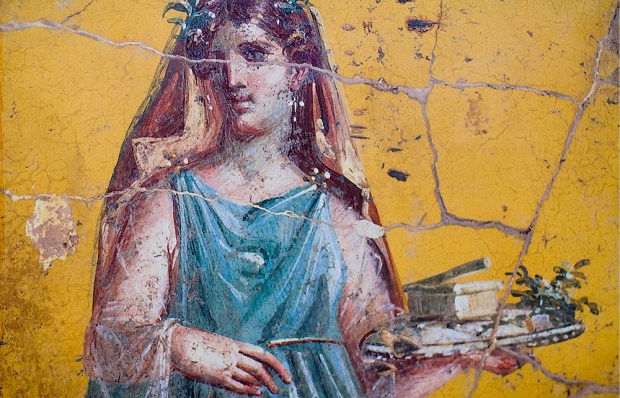Last week Aristotle offered a lesson in tyrant theory. This week Tacitus (ad 56-c.120) offers one in tyrant practice.
Tacitus was a Roman historian who enjoyed a successful political career, rising to consul and provincial governor. He admitted that he laid its foundations under the tyrannical emperor Domitian (d. ad 96) – he memorably contrasted Domitian’s red face with the pallor his gaze induced in his victims – and thought his duty as a historian was to ensure that those responsible for murderous deeds or heroic actions should never be forgotten. His judgment of Domitian’s reign was worthy of Orwell: ‘Rome of old [i.e. the republic, 508-27 bc] explored the limits of freedom, but we plumbed the depths of slavery, robbed by informers even of the interchange of speech. We would have lost our memories as well as our tongues had it been as easy to forget as it was to remain silent.’
His writing was of epigrammatic brilliance: ‘the reward of virtue was certain destruction’; ‘capable of ruling, had he never ruled’; ‘the accounts of an autocracy come right only if the autocrat is their sole auditor’; ‘when the state was most corrupt, laws were most abundant’; ‘all conversations with tyrants end with the words “Thank you”.’ He understood other points of view, making the Caledonian chieftain Calgacus say of Romans: ‘Looting, butchery and violation they falsely call “government”, and where they make a desert, they call it “peace”.’ He wondered whether Britons were sensible in starting to ape Roman manners: ‘They call it “civilisation”, when it is an ingredient of slavery.’
Tacitus was fortunate in this respect: as he tells us, he could write as freely as he did only because he survived to live in enlightened times under Trajan (ad 98-117), when ‘you can think as you please and speak as you think’. In 1995 Tacitus was banned in parts of ‘communist’ Eastern Europe. It raises the question: are there any Russian historians who, even were Putin gone, would dare to write of Ukraine as a free, independent nation?
Got something to add? Join the discussion and comment below.
Get 10 issues for just $10
Subscribe to The Spectator Australia today for the next 10 magazine issues, plus full online access, for just $10.
You might disagree with half of it, but you’ll enjoy reading all of it. Try your first month for free, then just $2 a week for the remainder of your first year.














Comments
Don't miss out
Join the conversation with other Spectator Australia readers. Subscribe to leave a comment.
SUBSCRIBEAlready a subscriber? Log in